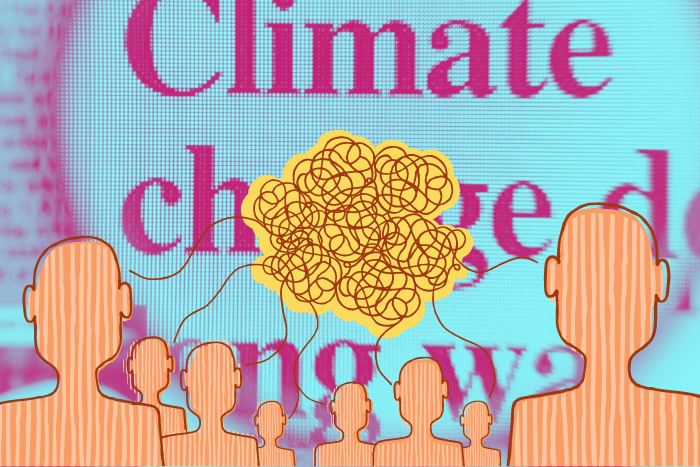33% of Indians surveyed say that “the main reason our bills are increasing is due to climate and net-zero policies”
Polling conducted in six countries demonstrated a significant gap between public perception and the science on issues as basic as whether climate change exists or whether it is mainly caused by humans. The survey conducted by Climate Action Against Disinformation (CAAD) and Conscious Advertising Network reported on the origin and impact of climate misinformation on public perception in different regions of the globe. The study was conducted online with respondents across Australia, Brazil, India, Germany, the UK and the USA.
The areas of climate misinformation were categorised into six sections, including beliefs contrary to scientific consensus about climate change, fossil fuel and energy consumption, renewables, energy prices and crisis, net-zero transition, climate action and climate policy.
On combining the data, it was found that between 55%-85% of the population surveyed believe at least one of the climate change misinformation statements included in the questionnaire, with the highest share in India and the lowest in the UK.
Far from facts in India
The survey found that in India, 20% do not believe that fossil fuel production can cause medical problems for the people living near the extraction sites. Also, 35% of respondents believe that fracking is a new and clean solution that will lower energy bills. When it comes to electric vehicles, 41% believe that the battery from electric vehicles cannot be reused or recycled and 33% say that electric vehicles are worse for the environment than regular cars. The report also found 47% of those surveyed believe that we should focus our efforts on technologies such as carbon capture and storage rather than trying to cut carbon emissions.
The report noted that such a gap between public perception and science weakens the public mandate for climate action and undermines the negotiations to achieve the goals of the Paris Climate Agreement.
Climate misinformation across the globe
Overall, between 6%-23% of the populations of the countries covered within the report do not believe in climate change or are uncertain about whether climate change is happening.
A further 22%-38% believed that humans are only partly responsible for the change in climate, with people in the US most likely to hold this belief. The results found that beliefs about the role of fossil gas are contrary to what climate science shows. Around 34% of Australians, 40% of Brazilians, 25% of Germans, 57% of Indians and 39% of US citizens believed that gas is a climate-friendly energy source. Only 14% of the population in the UK believed this disinformation.
The survey found that 20% or more of people surveyed in each country believe that ‘the climate has always changed, global warming is a natural phenomenon and is not a direct result of human activity.’ Populations in the US and Australia are most likely to hold this belief with 33% in each country believing this statement. One-quarter or more people surveyed in each of the six countries believe that their country ‘cannot afford to reach the target of net-zero emissions by 2050.’
Earlier this year, the IPCC Report on Climate Change 2022: Impacts, Adaptation, and Vulnerability indicated vested interests organising and financing fake and unsubstantiated narratives and anti-climate communication activities to influence public opinion on climate change and hinder progress on climate action.
The results of this survey reflected how prevalent climate disinformation beliefs and narratives are around the world. If you have any leads regarding climate mis-/disinformation, you can write to CAAD here.
About The Author
You may also like
A Fifth of Migratory Species Face Extinction from Climate Change: Report
Climate change, unplanned construction and a malfunctioning dam can worsen the flooding in north Bengal
Global Sports Bodies Face Renewed Criticism Over Aramco Ties Amid UN Human Rights Warning
Development Policy, Not Just Climate Change, Will Affect China’s Coastal Flood Future: Report
Can Private Players Reinvent India’s Forecasting Future?

